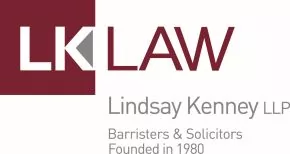The Court has stated numerous times that the use of an alter-ego trust is a valid planning tool, but that does not mean it cannot be challenged in certain circumstances. The most common among these challenges include (1) failure to comply with the basic requirements, (2) the inclusion of a pour-over clause, and (3) if it is considered a fraudulent conveyance.
- Failure to Comply with Basic Requirements
As noted in the drafting section, there are certain requirements for an alter-ego trust to be valid. Should the settler not be older than age 65 nor is not a resident of Canada, then the alter-ego trust will fail to be established. Likewise, the settlor MUST be entitled to all the income from the trust, and no one else but the settlor is allowed to receive or use any of the income from the trust.
The failure to comply is the easiest area to challenge an alter-ego trust, though attempts to save the trust by calling it an expressed trust may happen at this stage. When that happens, a different set of tools is needed to challenge that sort of trust.
- Pour-Over Clause
The concept is that one has a Will, where upon death, the property of the estate will be transferred to a trust that was created before the maker of the Will died. For example, Betty makes an alter-ego trust and then makes a Will that says, when she dies, her property will be transferred (or pour-over) into the alter-ego trust. It makes sense from a big-picture idea, that all Betty is doing, is gifting her property to the trust once she dies.
In the Quinn Estate v. Rydland, 2019 BCCA 91 case, this was the issue at play, and why it was found to be invalid because these sorts of trusts often have clauses that allow them to be amended after the Will was made. The facts of this case involve Mr. Pat Quinn gifting property in his Will to the Quinn Family Trust via a "pour-over clause" which read:
"Residue. I give, devise and bequeath the residue of my estate to the Trust known as the QUINN FAMILY TRUST dated March 4, 1996, between J.B. PATRICK QUINN and SANDRA QUINN, as Settlors and J.B. PATRICK QUINN and SANDRA QUINN, as Trustees, to be added to principal and thereafter to be held, administered and distributed under the terms of such agreement."
The Quinn Family Trust had a clause in it that allowed it to be amended. They then amended the Trust a year later, which had to do with banking requirements to comply with certain American banking standards. When these amendments were done, they did not comply with the formal validity rules.
In the Quinn case, there was no attempt to be underhanded or avoid legal regulations, but the mere opportunity for such issues was enough for the court to stop pour-over clauses. The court wanted to remove the possibility of mischief for one to gift property to a trust, to then use the trust to circumvent the legal rules. The court also wanted to avoid the uncertainty that comes with variable and revocable trusts and how that interacts with a Will.
- Fraudulent Conveyance
The key concept behind using the Fraudulent Conveyance Act RSBC 1196 C. 163 to challenge an alter-ego is that the trust was set up to deny legitimate creditors what is owed to them.
In Kramer v. Kramer, 2023 BCSC 116, the court was tasked with determining if the Plaintiff (a biological child of the deceased) had standing to bring a claim through the Fraudulent Conveyance Act. The background facts are that on May 31, 2015, Leanne Kramer (having power of attorney over Clara Kramer, the deceased) used the power of attorney to authorize the creation of the Kramer alter-ego trust (the "Trust"), transferring the majority of Clara Kramer's assets into the trust and appointing herself and two Victoria solicitors as trustees. The deceased then passed away in 2017. Karen Kramer (the plaintiff) learned of the Trust after the death of Clara Kramer.
However, simply having a claim under s. 60 of the Wills Estate and Succession Act SBC 2009 Chapter 13, does not give you standing as a creditor. The law states "the term "creditors and others" encompassed transferors, creditors, and other claimants that have legal or equitable claims against the transferor during their lifetime based on legal obligations such as a contract or debt obligation. As such the term "creditor and others" excluded claimants under the Wills Variation Act, as variation claims arise solely after the death of the transferor." However, if the beneficiary also has a claim for unjust enrichment, or otherwise contributes to the estate, then they may be a creditor.
If one can show that they do have standing under the Fraudulent Conveyance Act, then for their claim to succeed, they must establish
- As a matter of fact that they were a creditor of the estate and the property that was placed into an alter-ego trust or that they maintained a claim against the estate during her lifetime arising out of a legal obligation; and
- That they were a creditor of the estate, and that the estate was personally indebted to the person bringing the claim.
The test then for proving fraudulent conveyance is whether the conveyance was done with the intent of defrauding creditors or others. The intention need not be one of dishonesty merely that the estate intended to move the property to prevent creditors from being able to claim against it. Ultimately the court did not side with the Plaintiff in Kramer and did not consider her a creditor
Conclusion
While alter-ego trusts are valid tools recognized by the courts, it does not make them unassailable should they not meet certain basics in construction and implementation. Merely calling it an alter-ego trust is not enough, and they can be scrutinized to ensure that they were done correctly as set out by previous case law. For assistance with alter-ego trusts please contact any member of our Estate Planning and Litigation team.
About Mackrell International – Canada - Lindsay Kenney LLP is a full service business law firm with offices in Vancouver and Langley, BC and a member of Mackrell International. Mackrell International – Canada is comprised of four independent law firms in Alberta, British Columbia, Ontario and Quebec. Each firm is regionally based and well-connected in our communities, an advantage shared with our clients. With close relations amongst our Canadian member firms, we are committed to working with clients who have legal needs in multiple jurisdictions within Canada.
This article is intended to be an overview and is for informational purposes only.


